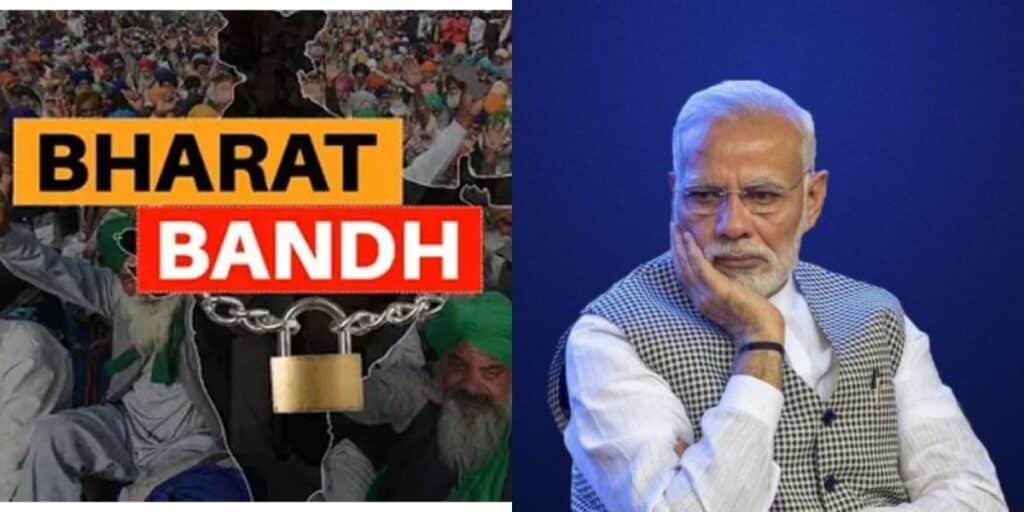WEBDESK: A massive wave of protests ‘Bharat Bandh’ has once again erupted across India as millions of workers have launched a nationwide strike against the anti-labour, pro-corporate policies of Prime Minister Narendra Modi’s government.
More than 250 million workers from key sectors such as banking, insurance, postal services, coal mining, transport and other industries announced their participation in the strike on Wednesday. The protest, named “Bharat Bandh” (India Shut Down), has been organised by a joint platform of 10 central trade unions.
Union leaders have accused the Modi led government of adopting policies that are harmful to workers, farmers, and the country as a whole. They claim that India has been pushed into corporate slavery, with labour rights being crushed and national welfare severely neglected.
Modi’s Government Has Turned India into a Corporate Slave State
Amarjeet Kaur, General Secretary of the All India Trade Union Congress (AITUC), told Indian media that after months of preparation, workers across the country were ready to take to the streets. She said that farmers, rural labourers, and workers from the informal sector would also take part.
Key services expected to be badly affected
Harbhajan Singh Sidhu from Hind Mazdoor Sabha confirmed that essential services including banking, postal operations, coal mining, factories and state-run transport would face major disruptions due to the strike.
Union leaders complained that they had submitted a 17 point charter of demands to India’s Labour Minister, Mansukh Mandaviya, last year. However, the government completely ignored the demands and even failed to hold the national labour conference for the past 10 years, exposing its indifferent attitude.
New Labour Codes Are a Conspiracy to Enslave Workers
In a joint statement, the unions rejected the four new labour codes introduced by the Modi government, calling them a direct attack on workers’ rights. According to the statement, these laws would curb the right to strike, end collective bargaining, and give employers a free hand to exploit workers without restrictions.
The unions accused the government of transforming India from a welfare state into a playground for corporate interests, placing farmers, workers, public services and national institutions at serious risk.
Bharat Bandh: Farmers and Agricultural Labourers Join the Movement
The worker’s movement has received major support from the farming community. The Samyukt Kisan Morcha (United Farmers’ Front) and agricultural labourers announced their full participation in the protests. Large demonstrations and sit-ins are also being held across rural India.
This is not the first time India has witnessed such mass protests against the Modi government’s policies. Similar nationwide strikes took place on 26 November 2020, 28-29 March 2022, and 16 February 2023, but the government never paid any serious attention to the demands.
Union leaders declared that this shutdown is not just another protest it is an open rebellion by India’s labour and farming communities against the ruling Bharatiya Janata Party (BJP) government.
Critics say Modi’s economic policies have thrown the average Indian citizen into a state of uncertainty, poverty and continuous exploitation. The Bharat Bandh is seen as a direct result of these oppressive policies, and if this protest gains more momentum, it could pose a serious challenge to Narendra Modi’s political control.
Read more: Modi’s Agniveer Scheme: soldiers reduced to contract workers






